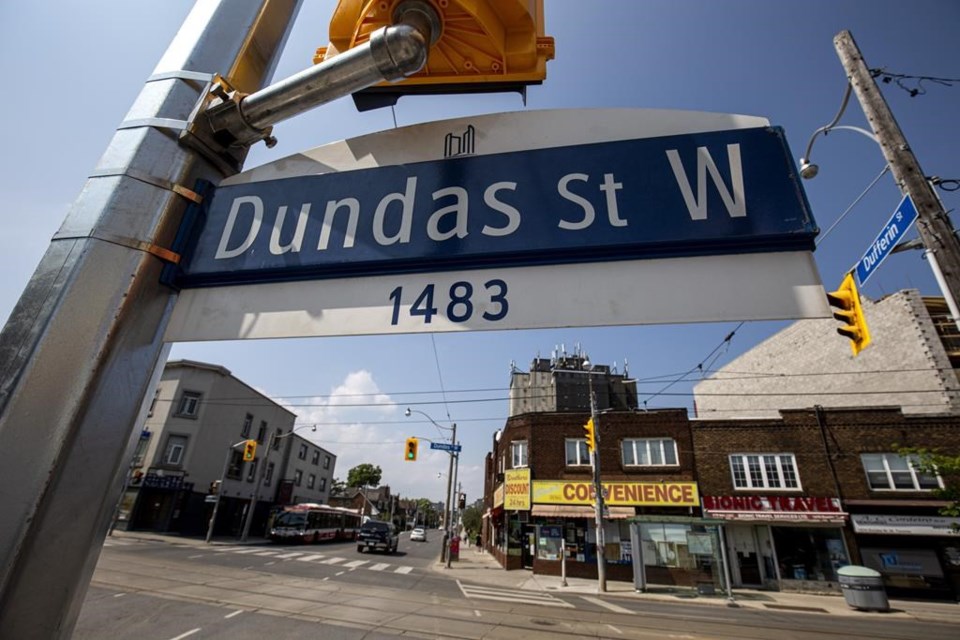TORONTO — City staff have recommended renaming Toronto's Dundas Street and other landmarks in an effort to promote inclusion and reconciliation with marginalized communities, a move supported by the mayor.
More than 14,000 people signed a petition last year asking for the street to be renamed because its namesake, Henry Dundas, an 18th-century politician who played a key role in delaying Britain's abolition of the slave trade.
Staff sought comment from Black and Indigenous groups and businesses on possible name changes, or doing nothing.
"It is very clear that engaging the public on any option other than a full renaming of Dundas Street and civic assets runs counter to the commitments council has made to equity, reconciliation and inclusion," wrote Chris Murray, the city's manager.
Ridding Toronto of the Dundas name will cost an estimated $5.1 million to $6.3 million. Costs include renaming Yonge-Dundas Square, two subway stations and all related signage, the report notes.
City staff also examined peer-reviewed research to better understand Henry Dundas and looked at more than 400 case studies on "the evolution of commemoration and naming policies."
"The continued commemoration of Henry Dundas – who is described in peer-reviewed academic research as having played an instrumental role in delaying the abolition of the slave trade – is in direct conflict with the values of equity and inclusion that the City of Toronto upholds," Murray wrote.
"Taking steps to right wrongs, challenge systemic institutionalized racism, and build a more inclusive Toronto is more important than ever."
Mayor John Tory said the time has come to make the changes.
"This is a moment in time when it is important to make a statement to the entire community about including those who have been marginalized and recognizing the significant effect past history can have on present day lives," Tory said in a statement.
The report will be considered by the city council's executive committee next week. If approved, it will then move on to city council for a decision.
The report also recommends creating an advisory committee with Black and Indigenous leaders to seek community input on new names.
The city would like to see recommended names by the second quarter of 2022.
The city is also working on a framework for how to deal with similar requests related to public figures the city has already honoured.
Murray wrote that the petition led to a "broader review of how the City commemorates public figures and events," which has now been dubbed the "Recognition Review."
"Most commemorations in Toronto represent the stories of white settler males in positions of power," the city manager wrote.
"This historic imbalance has meant that other stories — including those of Indigenous Peoples, Black communities, racialized communities, women, 2SLGBTQ+ persons, and other equity-deserving groups — are under-represented in the public realm."
City staff are aware of 60 other street names that "could require further examination."
There are at least 12 streets named after slave owners, the report notes.
This report by The Canadian Press was first published June 28, 2021.
Liam Casey, The Canadian Press

